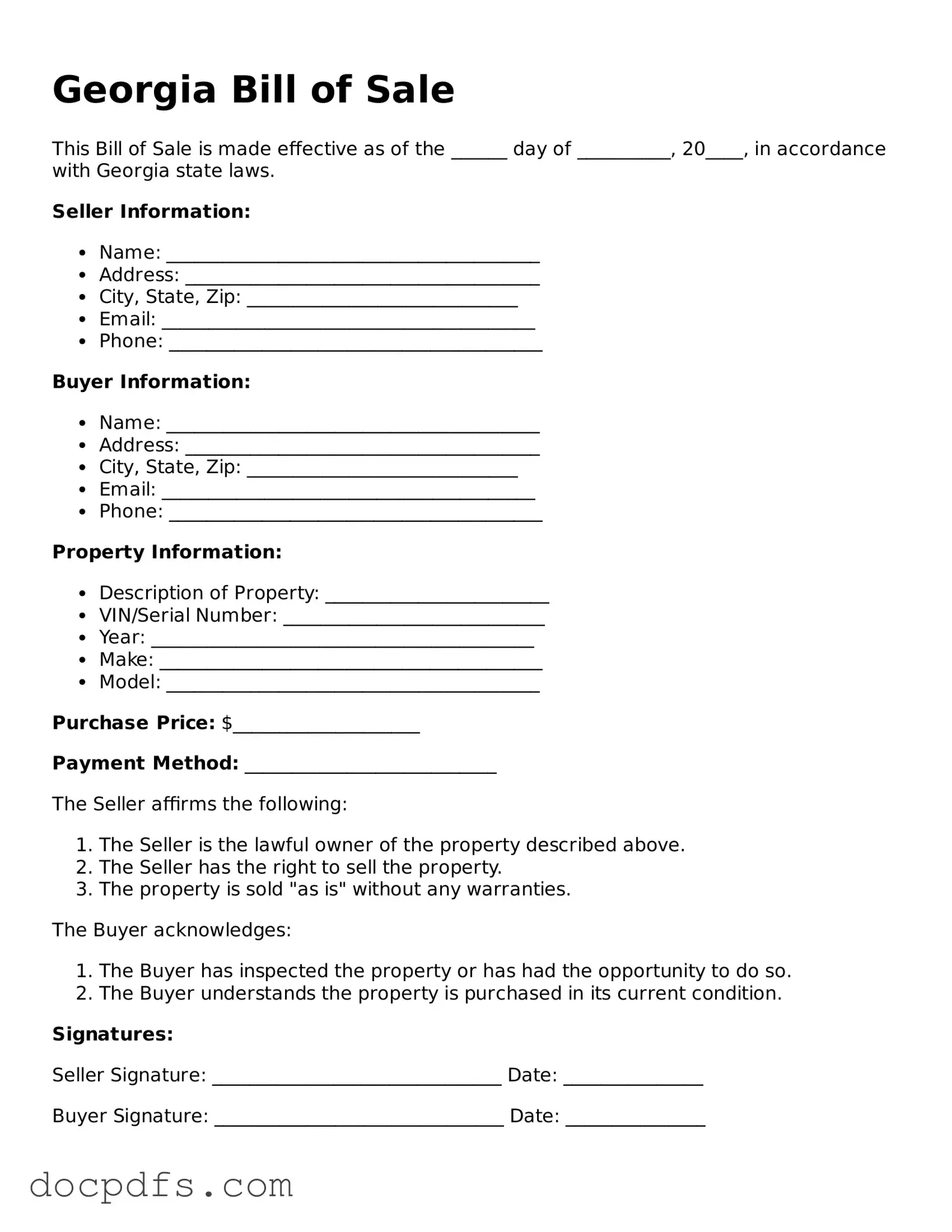What is a Georgia Bill of Sale?
A Georgia Bill of Sale is a legal document that records the transfer of ownership of personal property from one party to another. This document serves as proof of the transaction and includes details about the item being sold, the seller, and the buyer. It is commonly used for the sale of vehicles, boats, and other personal property.
Is a Bill of Sale required in Georgia?
While a Bill of Sale is not legally required for all transactions in Georgia, it is highly recommended. For certain items, such as vehicles, a Bill of Sale is necessary to register the vehicle and obtain a title. It helps protect both the buyer and seller by providing a written record of the transaction.
A comprehensive Georgia Bill of Sale should include the following information:
-
The names and addresses of the buyer and seller
-
A description of the item being sold, including make, model, year, and VIN (for vehicles)
-
The sale price
-
The date of the transaction
-
Signatures of both the buyer and seller
Can I create my own Bill of Sale?
Yes, individuals can create their own Bill of Sale. It is important to ensure that the document includes all necessary information and is clear and concise. Many templates are available online, which can help guide the creation of a Bill of Sale that meets legal standards.
Do I need a notary for a Bill of Sale in Georgia?
A notary is not required for a Bill of Sale in Georgia, but having the document notarized can provide additional legal protection. A notary public verifies the identities of the parties involved and witnesses the signing of the document, which can help prevent disputes in the future.
What if I lose my Bill of Sale?
If a Bill of Sale is lost, the parties involved can create a new document that references the original transaction. It is advisable to keep multiple copies of the Bill of Sale in a safe place to avoid complications. If the item sold is a vehicle, obtaining a duplicate title may also be necessary.
Is a Bill of Sale legally binding?
Yes, a Bill of Sale is a legally binding document as long as it contains the necessary information and is signed by both parties. It establishes the terms of the sale and can be enforced in a court of law if disputes arise regarding the transaction.
Can a Bill of Sale be used for gifts?
A Bill of Sale can be used for gifts, although it is less common. In such cases, the document should clearly state that the item is being given as a gift and should include the same essential information as a typical Bill of Sale. This can help clarify ownership and avoid potential misunderstandings in the future.
Bill of Sale forms for Georgia can be obtained from various sources, including legal stationery stores, online legal service websites, and government agencies. Many websites offer free templates that can be customized to fit specific needs. It is important to ensure that the form complies with Georgia state laws.

